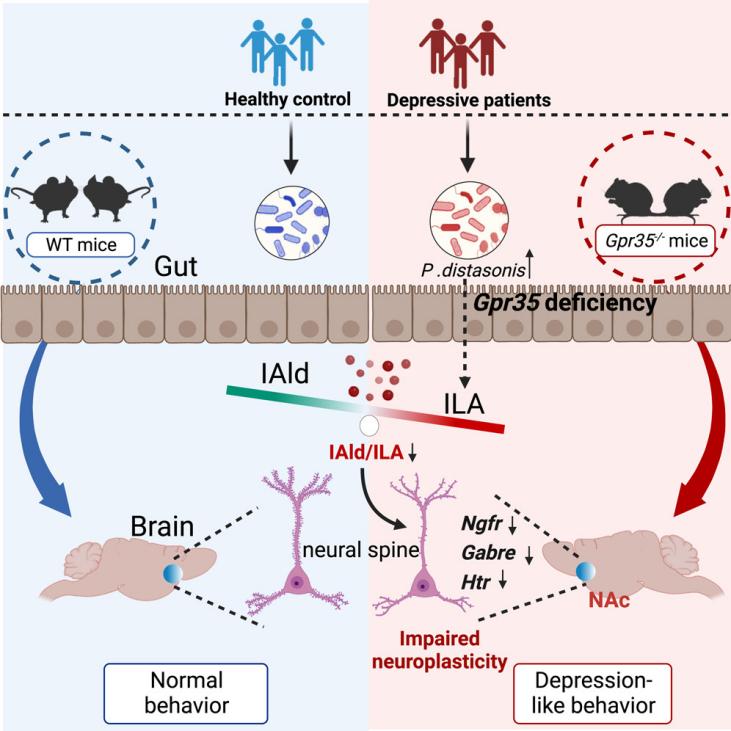Summary
Gene-environment interactions shape behavior and susceptibility to depression. However, little is known about the signaling pathways integrating genetic and environmental inputs to impact neurobehavioral outcomes. We report that gut G-protein-coupled receptor, Gpr35, engages a microbe-to-brain metabolic pathway to modulate neuronal plasticity and depressive behavior in mice. Psychological stress decreases intestinal epithelial Gpr35, genetic deletion of which induces depressive-like behavior in a microbiome-dependent manner. Gpr35−/− mice and individuals with depression have increased Parabacteroides distasonis, and its colonization to wild-type mice induces depression. Gpr35−/− and Parabacteroides distasonis-colonized mice show reduced indole-3-carboxaldehyde (IAld) and increased indole-3-lactate (ILA), which are produced from opposing branches along the bacterial catabolic pathway of tryptophan. IAld and ILA counteractively modulate neuroplasticity in the nucleus accumbens, a brain region linked to depression. IAld supplementation produces anti-depressant effects in mice with stress or gut epithelial Gpr35 deficiency. Together, these findings elucidate a gut microbe-brain signaling mechanism that underlies susceptibility to depression.
Article: https://www.cell.com/cell-host-microbe/fulltext/S1931-3128(23)00504-8




